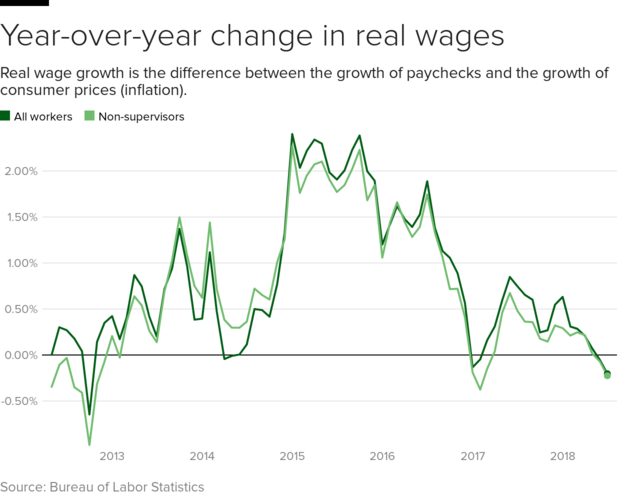
by Charles Ellison | Publisher’s Riff | @ellisonreport
Perhaps one of the more profound public post-shutdown reflections from lawmakers in Washington came from the usually low-key Sen. Brian Schatz (D-HI), as reported in the Philadelphia Inquirer:
[L]awmakers should feel “shame” that it took such problems to prompt action, when strains on food stamps and federal workers and other shutdown fallout failed to move the ball.
“Today is an indicator of what is happening to the government, of who matters to the government,” Schatz said on the Senate floor. “If the elites are imperiled or inconvenienced in any way at all, game over. And shame on us if that’s what it takes.”
It is rather revealing, and sad, that it took airline and airport delays - a relatively middle-to-upper class amenity inconvenience - to serve as the final straw-breaking-the-camel’s-back event, so to speak. Hence, relief over the shutdown reprieve should be either short-lived or prompt moments of troubling pause. Why that? Headlines, testimonials and countless stories of direct impact on 4 out of 10 Americans (at least according to pre-resolution surveys) weren’t enough until a travel amenity took a hit. The grave national security threat dimensions, looming large, were ignored. The economic challenges of neighbors didn’t really matter. Images of food lines or interviews with furloughed federal workers on the last dollar in their bank account really didn’t register an empathetic nerve from either White House or Congressional leaders. Commerce Secretary Wilbur Ross became a primary target of criticism when observing, in dismay, that he didn’t …
“… really quite understand why” there were federal workers standing in food lines. “The 30 days of pay that some people will be out, there’s no real reason why they shouldn’t be able to get a loan against it.”
But Ross was never the only one detached from the economic burdens of average Americans. National discourse continues missing that open, honest, movement-like conversation on how truly strapped the nation is. Instead, we leave it self-help gurus and personal finance columnists. We live in a perpetual state of anxiety and fear, assuming everyone is on a level playing field and contributing to a culture that generally cringes at giving the complete help needed or asking for it. We’re aware these dangerous, unsustainable trends exist, but we’re either too embarrassed as a culture, too shamed or too unable to apply therapeutic contextualization needed to cope.
The shutdown didn’t just show us how essential federal government functions are to everyday routine, but it also revealed that even federal workers - viewed, enviously, as fortunate professionals with public union protections - are largely vulnerable to what have become fairly normal, but unacceptable wealth gaps and financial strains. And if federal workers are this bad, just imaging how everyone else is doing. If the shutdown really did teach us anything it’s that …
Most Americans Don’t Have Rainy Day Funds
We’ve know for quite some time that more than 6 out of every 10 Americans aren’t saving at all or very little if they do. The travails of federal workers should have put that into perspective. Per a 2018 Bankrate survey …

The Cost of Living Just Keeps Rising
We’re paying for more things and putting out more expenditures on a wide range of both necessities and amenities that we didn’t have just 30 years ago. Looking at that Bankrate survey above, notice the percentage blaming “expenses” as the reason for not saving …

There’s not much real wage growth going on …

Consumers prices are also increasing, with the expectation that companies will ramp up passing their costs over to consumers this year.
The Bottom 90 Percent Just Can’t Keep Up
Some essential - and rather dire warning - reading is the “Top Charts of 2018” provided by the Economic Policy Institute. Here, we see the stark difference in earnings between the Top 0.1 percent and the everyone else.

The Federal Government’s Racial Demographics Reflect Racial Disparities
A workforce with the racial composition of the federal government as seen below …

… is going to end up showing some of the same economic fissures and inequality persistent 50 years after the assassination of Dr. Rev. Martin Luther King, Jr. ….

Americans Are in a Credit and Debt Crunch
Aggregated household debt in the country is at an all-time high of nearly $14 trillion and most Americans are pointing to lack of income as the culprit
![181101_GBR_StrugglingWithDebt_1920x1080[1] 181101_GBR_StrugglingWithDebt_1920x1080[1]](https://substackcdn.com/image/fetch/$s_!g0fT!,w_1456,c_limit,f_auto,q_auto:good,fl_progressive:steep/https%3A%2F%2Fbucketeer-e05bbc84-baa3-437e-9518-adb32be77984.s3.amazonaws.com%2Fpublic%2Fimages%2Ff2a70af6-5f6e-460b-8aa0-d1a15ae3b5c2_1920x1080)
Indeed, according to the Census bureau, average household debt is nearly $140,000, yet the average annual media income is less than $60,000. Credit scores, particularly when you see breakdowns by age, fare rather badly in this climate of economic uncertainty, with the average combined score being under 621 …

If anything, the shutdown experience should have alarmed policymakers on all levels - local, state and federal - to move swiftly towards addressing those gaps. It will take considerably more than just either tax cuts from the right or wealth taxes from the left. Unfortunately, we’re now in an election cycle and there’s little chance anything comprehensive and holistic will happen anytime soon.
